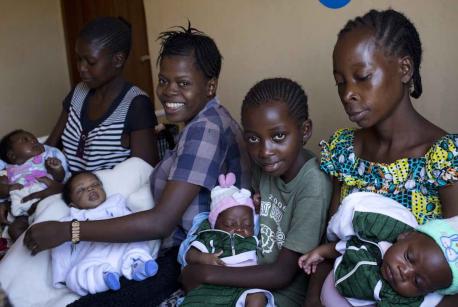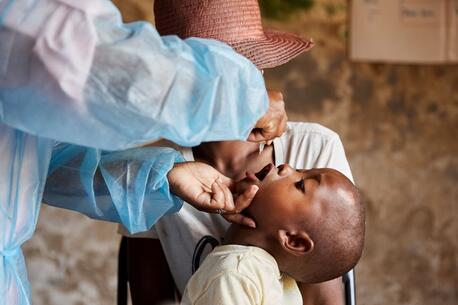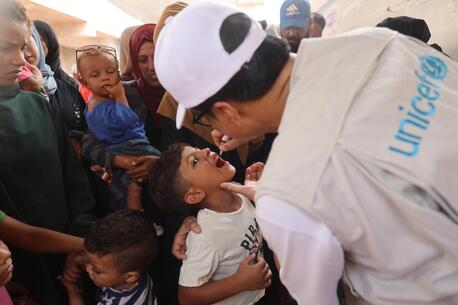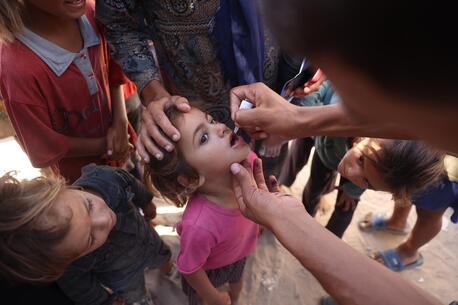
In the DRC, a Mother Helps a Village Fight Polio
Rachel and her family live in the Democratic Republic of Congo (DRC), where fighting among rebel groups has destroyed schools, villages and health centers. In Rachel's home province, Tanganyika, health coverage is so limited that when polio struck her village, UNICEF mobilized to get oral polio vaccines to the region — and convince parents that the vaccines were safe.
“We always thought that the health workers were lying to us," explains Rachel.
But when Rachel heard that her children's friend Justin had been paralyzed by polio, she realized she needed to do her part to protect the village children before they got sick.
"Justin was paralyzed and his parents suffered," says Rachel, who subsequently had all her children immunized in the UNICEF-supported vaccination campaign. "I’m going to ask everyone who lives around me to vaccinate all of their children so that they too aren’t infected."
The DRC polio outbreak began in 2017. Since then, UNICEF has helped vaccinate record numbers of children. In late 2018, 5.2 million children were immunized in seven provinces.
Globally, we are closer than ever before to eradicating this disease. This means a world in which every child would be safe from the paralysis the virus causes, and no family would ever have to bear the emotional and financial costs of the disease again. This would be only the second human disease in history that we’ve wiped off the face of the earth — a milestone that every member of the polio community, from health workers to donors and public health officials, will be a part of accomplishing.
Top photo: Mothers wait for their babies to be vaccinated against polio, measles and tuberculosis in the DRC, where health epidemics that vaccines can prevent are nevertheless a major concern. © UNICEF/UN0270027/Prinsloo
HOW TO HELP
There are many ways to make a difference
War, famine, poverty, natural disasters — threats to the world's children keep coming. But UNICEF won't stop working to keep children healthy and safe.
UNICEF works in over 190 countries and territories — more places than any other children's organization. UNICEF has the world's largest humanitarian warehouse and, when disaster strikes, can get supplies almost anywhere within 72 hours. Constantly innovating, always advocating for a better world for children, UNICEF works to ensure that every child can grow up healthy, educated, protected and respected.
Would you like to help give all children the opportunity to reach their full potential? There are many ways to get involved.





